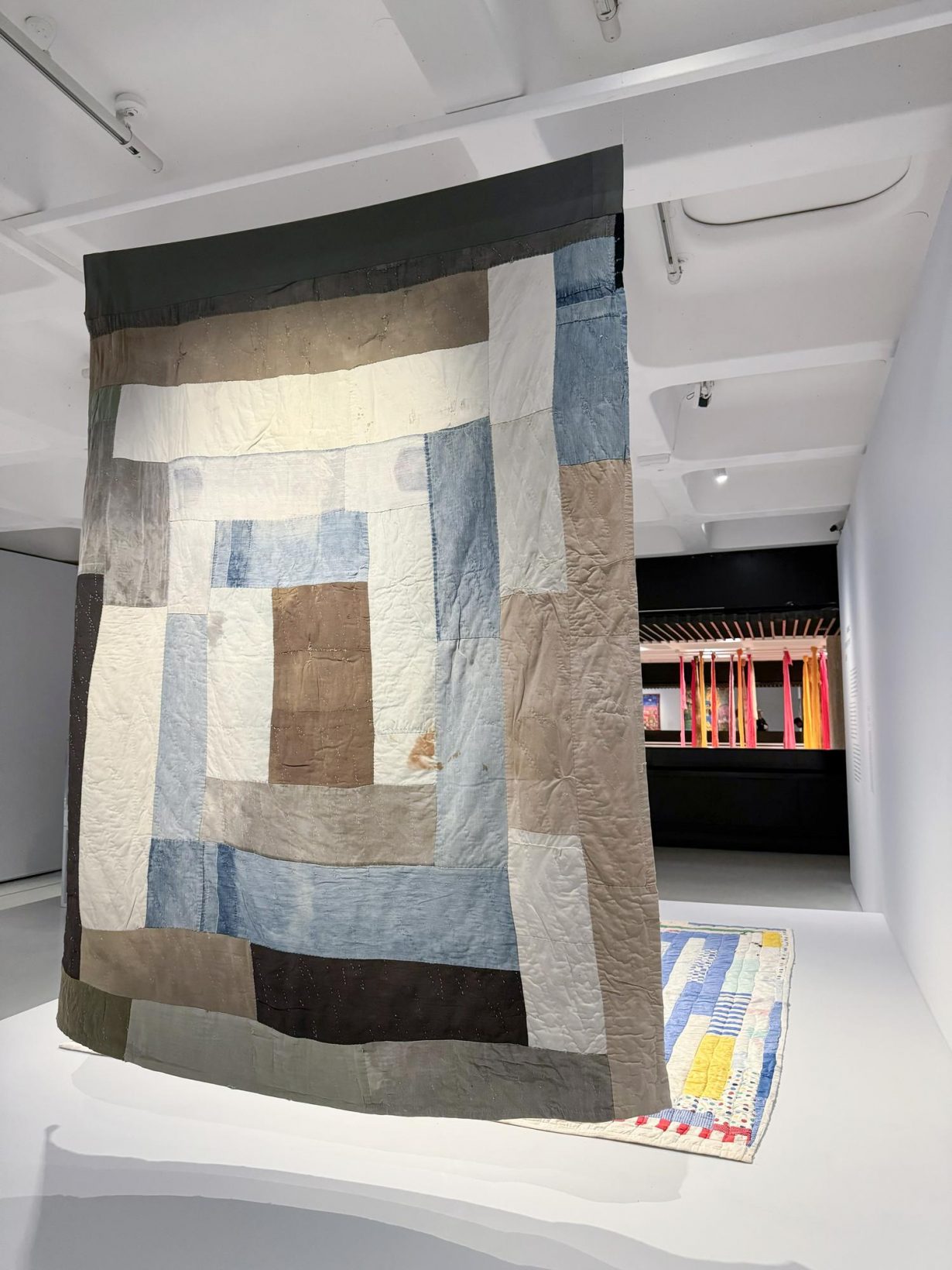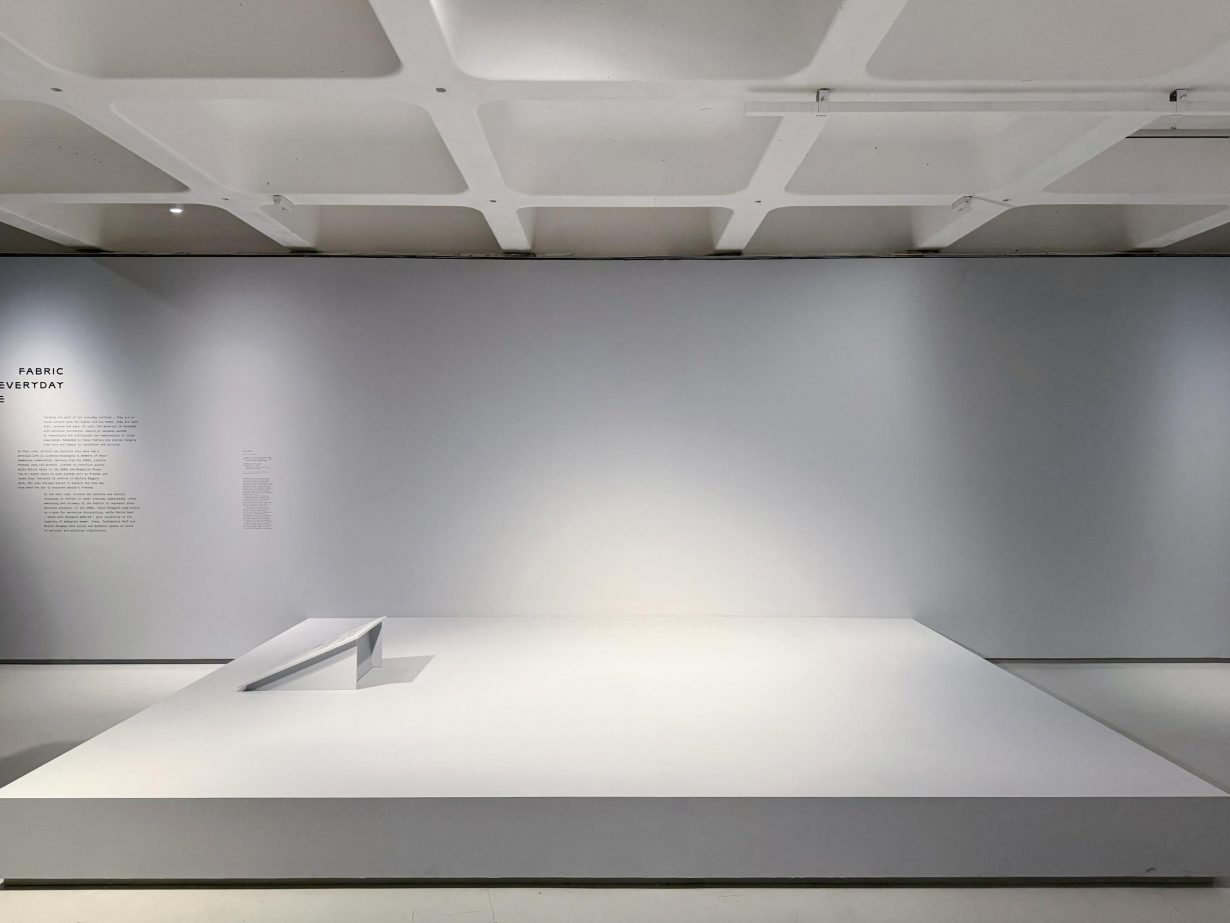
LATEST: Two more artists have pulled their works from the show in protest of anti-Palestinian censorship
Collector couple Lorenzo Legarda Leviste and Fahad Mayet have removed two works from a show at The Barbican to protest the institution’s cancellation of a series of lectures by Indian thinker Pankaj Mishra that included a talk about the Holocaust and allegations that Israel is committing genocide in Gaza.
At the collectors’ request, the works – two quilts by member of the Southern American artist collective Gee’s Bend – have been removed from the current textile group exhibition Unravel: The Power and Politics of Textile in Art, two weeks into its run. In their place, the Barbican has installed an empty plinth with the accompanying statement: ‘These two works have been withdrawn at the request of the lenders, as an act of solidarity with Palestine, in response to the Barbican’s decision to not host the London Review of Books (LRB) Winter Lecture Series.’
The Barbican was due to host the series through February and March but backed away after the event was advertised on the LRB’s website under the title ‘The Shoah after Gaza’. In a statement published on 14 February, the museum said the event was advertised ‘prematurely’, before any agreement was finalised, and had not given them enough ‘time to do the careful preparation needed for this sensitive content’.

The event was later hosted at St James Church in Clerkenwell on 28 February. A transcription of the talk was published on LRB’s website.
‘I cannot understate how disturbing and alarming this blatant act of repression (and lack of transparency) by the Barbican is,’ Leviste wrote in an email to the Barbican’s exhibition curators and catalogue contributors. ‘[One] of the country’s most important arts institutions censoring one of the country’s most respected public intellectuals and literary publications from speaking openly about crimes committed by Israel that we are all watching with our own eyes, on our phones, daily; crimes that are currently being investigated by the International Court of Justice. The message it sends to arts institutions across the UK, and the precedent it sets for further suppression of speech, is chilling. It should horrify us all that this is the liberal democracy we are told we live in.’ The email correspondence has been re-published online.
It is not the first time the Barbican has been embroiled by allegations of censorship. Last year, just before a livestreamed talk by Elias Anastas – co-founder of the Bethlehem-based Radio Alhara – he was told by a Barbican staff to ‘avoid talking about free Palestine at length… just to safeguard the audience,’ while Anastas’s interviewer Nihal El Aasar was also instructed to ‘steer clear of thorny issues’ such as ‘free Palestine… or whatever’. The event was later cancelled due to technical issues. The Barbican centre issued a public apology shortly after the incident.
8 March: Following Leviste and Mayet, French Moroccan artist Yto Barrada and the Filipino artist Cian Dayrit have also removed their works from Unravel in protest.
‘I am requesting the removal of my art works […] following the cancellation of a London Review of Books (LRB) lecture by Pankaj Mishra about the ongoing genocide Gaza and the creeping normalization of censorship across art institutions,’ Barrada wrote in a statement shared with The Art Newspaper. ‘Today, we cannot take seriously a public institution that does not hold a space for free thinking and debate, however challenging it might feel to some staff, board members or anxious politicians. I request that the reason for my withdrawal be indicated in the gallery, echoing the statement that accompanied the withdrawal of Loretta Pettway’s quilts. I pray for peace, justice and an immediate ceasefire in Gaza. In solidarity, Yto Barrada.’
‘We regret that we were not able to get the necessary logistical arrangements in place to host the LRB Winter Series,’ Claire Spencer, CEO of the Barbican Centre said in a statement. ‘We recognise the decision has created significant concern about artistic freedom, and which voices are given a platform to speak during this moment of deep humanitarian crisis. We are sorry for the distress we have caused to everybody who feels we have let them down.’